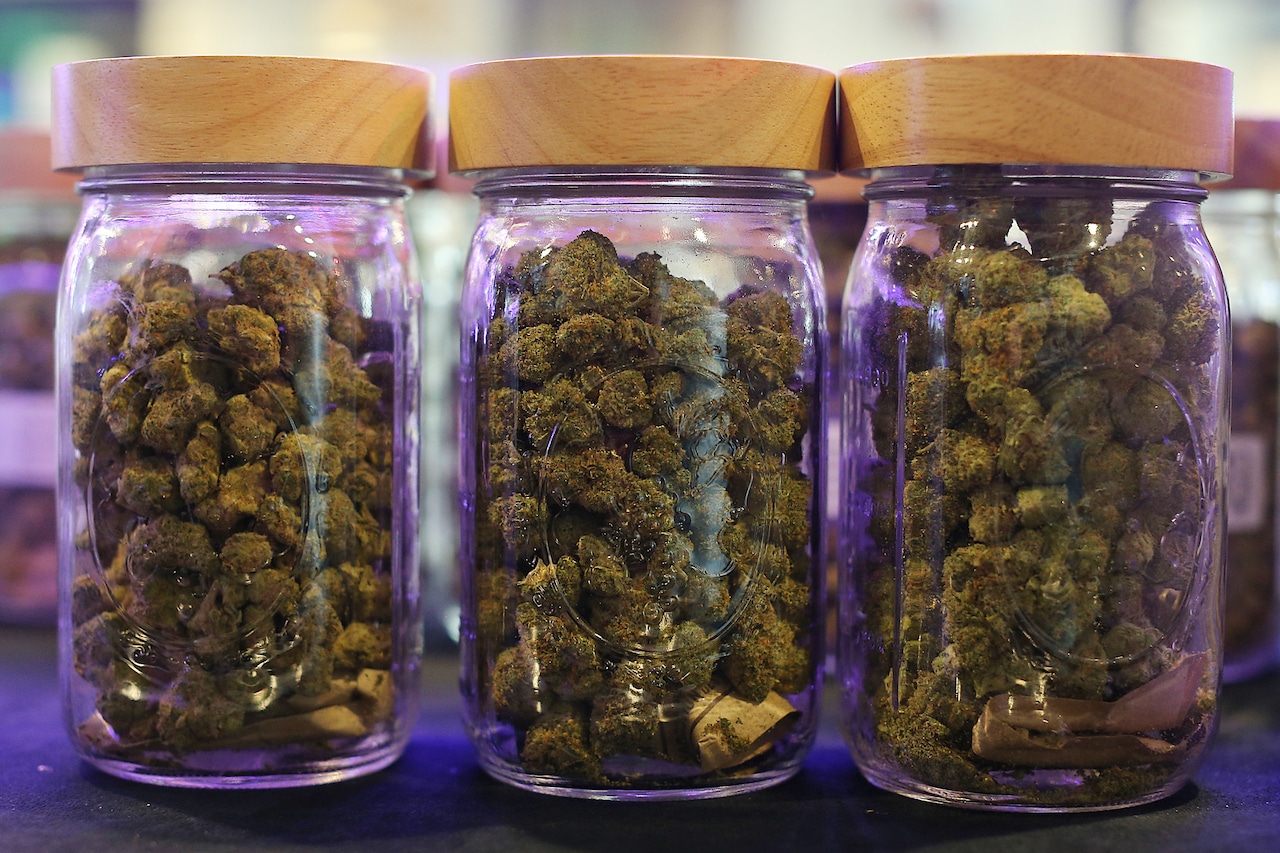
LANSING, MI — A 24% tax on marijuana may soon impact the wallets and bank accounts of Michigan cannabis consumers.
The House on Thursday, Sept. 25, passed House Bill 4951, which aims to raise $420 million in new tax revenue for road funding from a 24% wholesale tax on marijuana products.
The tax could take effect on Jan. 1, if passed by the state Senate.
The proposed tax shrank from the 32% figure Gov. Gretchen Whitmer floated as part of her “MI Road Ahead” plan to “fix the damn roads” that was announced in February.
“I don’t think that citizens have a bunch of extra money laying around right now,” said Robin Schneider, director of the Michigan Cannabis Industry Association, a group that lobbies on behalf of marijuana businesses. “They’re going to go wherever they can get it cheapest. And yes, I think it will be cheaper on the illicit market.”
Schneider said growers and producers will bear the initial brunt of the new tax, likely resulting in mass layoffs and business closures, but over time the tax burden will be shifted to marijuana consumers.
She believes tax revenue projection is a “completely fraudulent number,” since a large chunk of Michigan marijuana returns — she estimated 30% — comes from border sales to out-of-state residents.
“This will put us at the second highest cannabis tax rate in the country and we will lose our regional advantage, and therefore lose all of those border sales,” Schneider said. “There will be no reason for them to come here.”
If the legislation passes in the Senate, Michigan marijuana would include a combined 34% tax, including the existing 10% excise tax on retail sales. Washington is the only other state with a higher rate, currently with a 37% excise tax on retail sales.
Related: Marijuana insiders say Gov. Whitmer’s proposed 32% tax would strangle golden goose
CAUGHT OFF GUARD
Most industry insiders feared the Legislature would implement a new tax — and even lobbied against it in Lansing this week — but were nevertheless blindsided by House passage of the bill which many didn’t realize had been introduced, according to Schneider.
The legislation was dubbed the “comprehensive road funding tax act” when presented by state Rep. Samantha Steckloff, D-Farmington Hills, on Sept. 16 and didn’t mention marijuana. She didn’t respond to an MLive request for comment.
Steckloff’s substitute bill made clear it aimed to increase marijuana taxes and was filed on Sept. 25, hours before it passed, 78-21, with bipartisan support.
While Republicans don’t traditionally support tax increases, passage of the legislation aligns with a budget agreement reached between the House, Senate and governor. The agreement included significant road funding increases that rely on new marijuana tax revenue.
State Rep. Joseph Aragona, R-Clinton Township, chair of the House Reform Committee, said the state House originally presented a budget that fully funded roads without tax hikes.
“They, in turn, sent us a budget that overspent by a billion dollars” and “so they basically said, well, we need to raise taxes,” Aragona said. “This is the deal that (Democratic state Senate Majority Leader Winnie Brinks) came to with (Republican state House Majority Leader Matt Hall) and with the governor.
“We didn’t want to do it, we don’t like it, but this is the deal that was cut.”
LOOMING LITIGATION
Aragona “fully expects” the state Senate to also pass the new tax.
However, bill opponent Jamie Lowell, president of Michigan’s National Organization for the Reform of Marijuana Laws chapter, and Schneider, say implementation won’t go unchallenged.
They believe a 3/4 super-majority is required to implement a new tax, since both recreational and medical marijuana laws were passed by voter ballot initiative.
The Michigan Constitution states no law “adopted by the people at the polls … shall be amended or repealed, except by a vote …. by three-fourths of the members elected to and serving in each house of the Legislature.”
The 2018 recreational marijuana law, known as the Michigan Regulation and Taxation of Marijuana Act, established a 10% excise tax on all marijuana sales and outlines the distribution, 35% of which is pegged for roads and bridges.
In 2024, nearly $116 million of the state’s $331 million in marijuana excise tax revenue went toward road funding.
“The 10% excise tax was purposefully put as the sole tax,” said Lowell, who advocated for and helped create the 2018 law. “The wholesale tax was left out on purpose. It wasn’t just left up for grabs.
“It was passed by the people … and you can only amend it through a super-majority.”
The House vote fell five short of a super-majority.
Schneider said her organization is working with attorneys on a legal strategy, should the legislation pass. Any litigation would likely include a motion for an emergency injunction to halt the new tax, until the issue is resolved by the courts, she said.
“It’s going to be something that has to go through a different step to find out” if it’s legal or not, Lowell said. “And my opinion, if a judge says it’s good, then the judge was wrong.”
Aragona said the legal opinion in Lansing is that the Legislature is able to add the wholesale tax without violating the state Constitution.
MLive requested comment from state Attorney General Dana Nessel’s office regarding whether the tax might violate the super-majority requirement and is awaiting response.
BASEMENT PRICES
The move to increase marijuana taxes comes as the industry is experiencing record-low prices. As of August, the retail cost of an ounce of marijuana was just under $62, a 24% decline over the previous year.
The market is on track to generate over $3 billion for the second straight year.
Schneider is concerned a significant price increase could push consumers toward the black market, which continues to compete with legalized industries across the nation.
And it’s occurring at a time when Schneider said many businesses are struggling to survive on smaller profit margins. She said other states have already tried to implement similar taxes, citing California.
California Gov. Gavin Newsom this week signed legislation repealing a 25% tax hike imposed on his state’s marijuana industry. Legislators there said the move was intended to give legal businesses a fair chance of surviving amid strong black-market competition.
“There’s going to be a hassle with this whether it passes or doesn’t pass,” Lowell said. “If it passes, there’s going to be a legal challenge on it for not amending the act and for circumventing the voter intent.”



